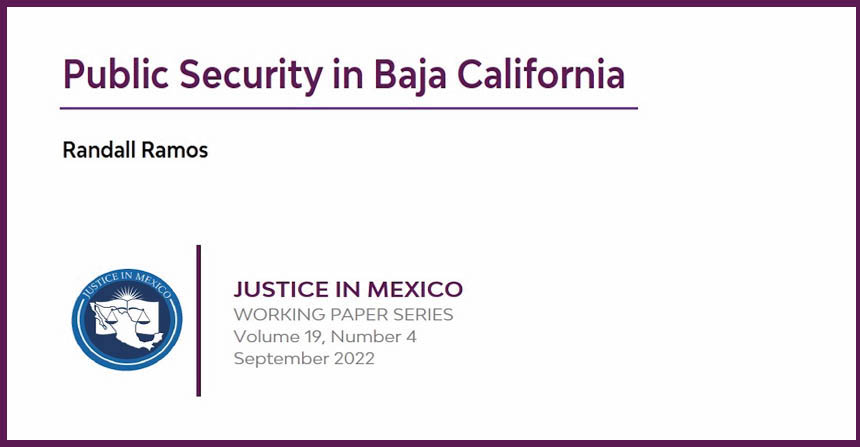
02/07/2013- During the November 2012 U.S. elections, citizens across the United States looked upon the legalization of marijuana in Colorado and Washington with apprehension, while others met its passing with enthusiasm. Amid the passing of such referendums in the two states, the U.S.’s southern neighbor also looked upon the legalizations with interest. The Economist and Reuters report that within a period of just six years, more than 50,000 lives have been claimed as a result of the war on drugs, which began in late 2006 during the Calderón administration. This death toll does not account for the thousands who remain unaccounted for, nor does it include the thousands who have been displaced because of drug-related violence.
According to the study “Si los vecinos legalizan” (“If the Neighbors Legalize”) compiled by Alejandro Hope and Eduardo Clark of the Mexican Institute for Competitiveness (Instituto Mexicano para la Competividad, IMCO), 40% to 67% of the marijuana consumed in the United States is supplied by Mexico. Marijuana in Mexico is primarily grown in the western and southern regions of the country. Mexican marijuana is considered a viable option for the U.S. consumer, given it is relatively inexpensive in comparison to the cost of marijuana grown in the United States. Drug cartels supplying the drug to U.S. consumers are said to profit from marijuana exports at a figure of up to $2 billion annually, according to IMCO. As major suppliers of cannabis, drug cartels (within the context of the legalization of marijuana in Colorado and Washington, and the existing legality of medical marijuana in a few other states) are likely to experience fierce competition with one another thereby exacerbating the violence in Mexico.
The debate on the legalization of marijuana leads to question whether Enrique Peña Nieto’s administration is enthusiastic about the prospects of legalizing marijuana in Mexico. Luis Videgaray Caso, current Minister of Treasury for Mexico, responded to the press that though the outcomes in Washington and Colorado meant that Mexico would re-strategize, the president himself is opposed to the idea of the legalization of drugs.
Cesar Duarte, governor of Chihuahua and member of the Institutional Revolutionary Party (Partido Revolucionario Institutional, PRI), along with Fernando Belaunzaran, member of the Party of the Democratic Revolution (Partido de la Revolución Democrática, PRD),
Mario Anguiano, governor of the state of Colima and also member of the PRI, and Miguel Angel Mancera, mayor of Mexico City from the PRD, seem to oppose the prohibitionist stance of the majority of the Mexican Congress and of the current president. Prior to the outcomes in Colorado and Washington, Mancera headed a forum that put national legalization of marijuana back on the agenda. Reuters reported that Belaunzaran presented a bill in early November of 2012 to the Mexican Congress that seeks to legalize the cultivation, sale, and recreational use of cannabis, though nothing substantive has resulted.
According to the IMCO report, the majority opinion in Mexico adheres to the prohibitionist position, which is reflected in public opinion polls taken in November and December, 2012. As reported by the Los Angeles Times, the November poll indicates that up to 79% of Mexicans are opposed to the legalization of marijuana. The Gallup poll from December, in contrast, shows that 50% of U.S. residents are against legalization, while 48% are in favor of it. Isaac Campos, a historian at the University of Cincinnati who spoke with the Los Angeles Times, recalls that the Mexican public has been conservative on the topic of legalization of marijuana since the 1920s, when marijuana was initially outlawed in the country, nearly two decades before the United States banned the drug.
For his part, President Obama reflected on the legalization of marijuana in the two states by saying that he does not support the legalization of marijuana and that the possession, use, and cultivation of marijuana is still illegal under federal law. The developments are ongoing, though little initiative has been presently taken in the legalization of marijuana within the Mexican Congress, largely because the majority is against such a proposition.
Sources:
T.W. “Legalizing Marijuana: The View from Mexico.” The Economist. November 12, 2012.
Torres, Noe. “Mexico Lawmaker Introduces Bill to Legalize Marijuana.” Reuters. November 15, 2012.
Cohen, Adam. “Will States Lead the Way to Legalizing Marijuana Nationwide?” TIME. January 30, 2013.




